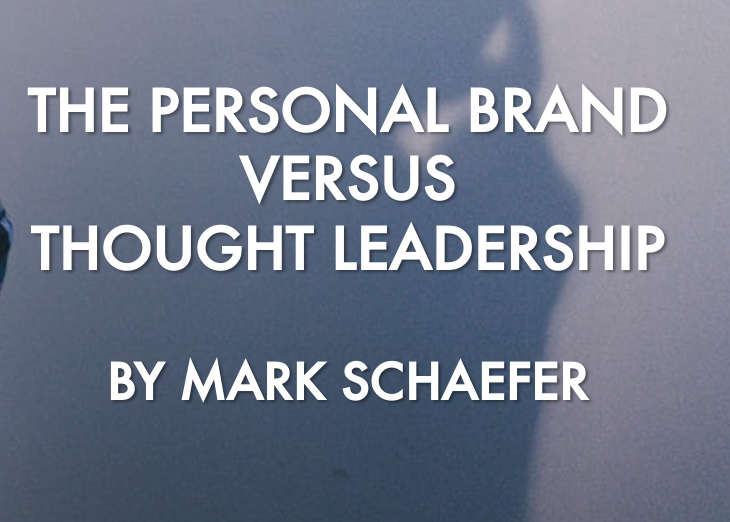
My friend Shubha Chakravarthy asked me, “What’s the difference between thought leaders and personal brands?”
Shubha and I have become friends over the past few years and I always admire the way she learns with urgency. This is an interesting question with a non-obvious answer. My favorite!
For argument’s sake, let’s define “personal brand” as I do in my book KNOWN.
Being “known” through your personal brand is not the same as being famous. Known means having the presence, authority, and reputation to give you your best chances of getting your job done.
Thought leaders are informed opinion leaders and the go-to people in their field of expertise.
So here is the requisite Venn Diagram required of any serious article for serious people.
Obviously, you can be “known” in your field through a presence that is funny, quirky, bombastic, or any of the millions of ways you can boldly differentiate yourself in this noisy world. You do not necessarily need to be a thought leader to be known.
On the other hand, there are plenty of wonderful thought leaders who aren’t known — they don’t have a profound digital presence. Perhaps they are simply too busy thinking big thoughts to start that blog or podcast. Perfectly OK.
Here’s where it gets interesting. On most Venn Diagrams, the intersection of these worlds represents some ideal state. Venn Nirvana. Or maybe Venirvana. I just made that up.
But that is NOT necessarily the case here.
People in each of these divisions can be happy and successful in their own way. You can be successful and known and not be an authority. You can be successful as an authority who is not known. Yay. Sometimes moving toward “the middle” is just a distraction.
Moving to the middle
However, in my personal coaching sessions, I normally encourage people on both sides to advance to this middle state if their life permits. It lowers career risks and opens new opportunities.
If you are a thought leader, your chance to spread your brilliant ideas and monetize would be enabled by building a larger, engaged audience. An example would be a non-profit leader I know who is an inspiring visionary. He has a chance to make a bigger impact on the world if he develops his personal brand beyond the small world he is in now.
If you are known, but not a thought leader, you have a chance for more long-term opportunities and security if you are also seen as a thought leader in some subject. An example is a friend who is an inspirational keynote speaker who has not developed any marketable expertise he can leverage into books or consulting. In a pandemic when the speaking industry has been pummeled, this would have helped insulate his income stream.
Taking action
If you’re interested in investing in your career, I’m offering an extraordinary opportunity. For the first time ever, I’m leveraging the research that went into KNOWN and years of personal coaching experience into an eight-session immersive personal branding Master Class. It’s a reasonable price at $1,500 and you get (over three weeks):
- Six LIVE online sessions with me and a small cohort of just 10 students.
- Two private personal coaching sessions with me
- Activities specifically designed to help you focus on your specific path to become known in your industry
Click here to learn more and apply to be accepted into this course. I’m completely confident that this process works and that this will be an excellent investment in your career.
Follow Mark on Twitter, LinkedIn, YouTube, and Instagram.
Illustration courtesy Unsplash.com
